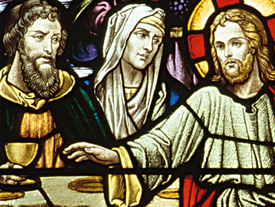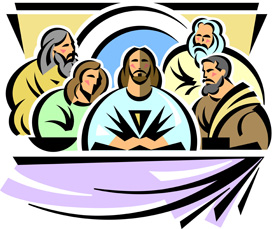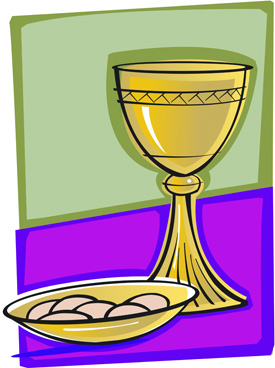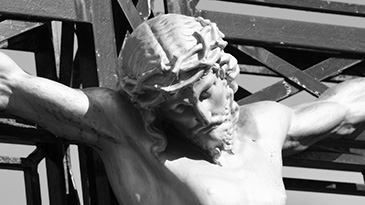One of the curious elements of the Passover Jesus shared with his apostles in the upper room, as recorded in Luke 22:14-20, is the comment, “he gave thanks.” Thanks? For what exactly? Jesus is hours away from being arrested, cruelly abused, and murdered in humiliation. And he knows it full well. Thanks! For what?
For the material elements themselves? A simple “loaf” of unleavened bread, the commonest of food, better suited to fill a stomach than to nourish. The drinkable juice of a plant that grew clusters so large and plentiful and of which some shriveled on the vine or fell to the ground unharvested for lack of need and interest?
Why, “Yes!” Of course. As we are often reminded in the Scriptures: Every good and perfect gift comes down from above! That bread and that juice represent all the wonderful things of the earth—all the food and drink—that we need and enjoy. All are gifts from God and worthy of thanksgiving.
Were his words thanks for the memories elicited by those elements?
Bob Hope sang, “Thanks for the Memories” to countless thousands. (Did he ever recall those occasions he had looked into the faces of young men and women who might well be within a few hours or days of sacrificing themselves for the one-time ideals of a nation?)
Why, “Yes!” Of course. For the Jews, memories of Passover were to be goaded by the sharp stick of an annual celebration. God has delivered his people from bondage of cruel Egyptians who think them to be property. Lest we forget . . . we are here to remember. And for us it is a weekly remembrance, much more suited to our greater deliverance, deliverance from the bondage of sin itself!
Yet there are events related to those elements that have not yet occurred at the occasion of Luke 22. Jesus’ body has not yet been broken; his blood has not yet been shed. We have the greater, the richer memories.
Were Jesus’ words thanks for the meaning of the whole occasion?
Would this be the same as when the children of Hebrew families at Passover asked, “What mean ye by this service?” (Exodus 12:26, King James Version). Perhaps, the better translation of that verse is in the New International Version, “What does this ceremony mean to you?” (author’s emphasis).
So, here I stand—the child at your table—asking, “What does this mean to you?”
Are you here with thanksgiving?
For the material elements?
For the memories?
For the meaning?
Our answer must be, “Yes! Of course!”
Ron Davis loves “standing at the cross” reverently and thankfully each week at the Lord’s table of grace and sensing God’s love.












